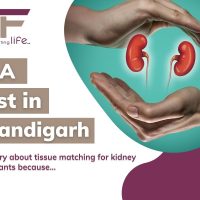A general physician, also known as a primary care physician or MBBS (Bachelor of Medicine and Bachelor of Surgery) doctor, is a healthcare professional who provides comprehensive and ongoing medical care to patients of all ages.
These doctors are trained in a wide range of medical disciplines, including internal medicine, pediatrics, obstetrics and gynecology, psychiatry, and surgery. This allows them to diagnose and treat a wide range of medical conditions, from common illnesses such as the flu or a cold to chronic conditions like diabetes or high blood pressure.
CContents
Misconception-1: General physicians only treat common illnesses and injuries.
While general physicians do treat common illnesses and injuries, they are also trained to diagnose and manage a wide range of medical conditions. This includes acute and chronic illnesses, as well as conditions that require specialized treatment or referral to a specialist.
General physicians are also trained in preventive medicine and can provide advice on maintaining good health and preventing illness. They often serve as the primary care provider for patients and are responsible for coordinating care with other healthcare providers.
Misconception-2: General physicians are not as skilled as specialists.
General physicians undergo extensive medical training and are capable of providing high-quality care for many medical conditions. They often work closely with specialists to provide comprehensive care for their patients.
In addition to providing routine care, general physicians are also trained to recognize and manage acute medical conditions, such as heart attacks or strokes. They may refer patients to specialists for more advanced treatment if needed.
Because general physicians have a broad range of knowledge and experience, they are well-equipped to provide personalized care to their patients. They take into account a patient’s overall health, medical history, and lifestyle to develop a treatment plan that is tailored to their individual needs.
Overall, general physicians play a crucial role in the healthcare system, providing comprehensive and personalized care to their patients.
Misconception-3: General physicians only see patients in their clinic.
General physicians may see patients in their offices, but they also provide care in hospitals, nursing homes, and other healthcare settings.
Misconception-4: General physicians only prescribe medication.
In addition to prescribing medication, general physicians also provide preventive care, perform physical exams, and offer advice on healthy lifestyle choices.
Misconception-5: General physicians are not as important as other healthcare providers.
General physicians play a crucial role in the healthcare system, providing primary care and coordinating care for their patients. They are an essential part of a patient’s healthcare team.
General physicians only treat common colds and flu – This is a common misconception about general physicians because they are actually trained to diagnose and treat a wide range of medical conditions, from chronic diseases to complex medical issues.
General physicians are not specialists – While it is true that general physicians are not specialists, they are still highly trained medical professionals who are qualified to diagnose and treat a wide range of medical conditions. They often work closely with specialists to provide comprehensive care to their patients.
In a specific area of medicine, but rather have a broad knowledge and understanding of various medical conditions and treatments. They are trained to diagnose and treat common medical issues, refer patients to specialists when necessary, and provide ongoing care for chronic conditions. General physicians often serve as primary care providers for patients, providing comprehensive care and managing overall health and well-being.
General physicians are not as qualified as specialists – This is not true because general physicians have to undergo the same rigorous medical training and licensing process as specialists. They are trained to diagnose and treat a wide range of medical conditions, and often have years of experience in their field.
General physicians do not provide specialized care – This is another common misconception because general physicians often work closely with specialists to provide specialized care to their patients. They may refer patients to specialists for further testing and treatment, but they are still able to provide comprehensive care to their patients.
General physicians are not as important as specialists – This is not true because general physicians are the first line of defense for patients seeking medical care. They are the ones who diagnose and treat a wide range of medical conditions and often provide ongoing care to their patients. Without general physicians, the healthcare system would be overwhelmed with patients seeking specialized care.
Some Faqs related to General Physician
What is a general physician?
A general physician, also known as a primary care physician, is a medical doctor who provides general medical care to patients of all ages.
What are the responsibilities of a general physician?
The responsibilities of a general physician include conducting physical exams, diagnosing and treating illnesses and injuries, ordering and interpreting lab tests, and providing preventive care and health education to patients.
What are the common medical conditions treated by a general physician?
Common medical conditions treated by a general physician include cold and flu, allergies, asthma, diabetes, high blood pressure, and high cholesterol.
How can a general physician help prevent serious health conditions?
A general physician can help prevent serious health conditions by providing regular check-ups and screenings, identifying and treating early symptoms of illnesses, and providing health education and lifestyle advice to patients.
What qualifications do general physicians need to have?
General physicians need to have a medical degree, complete a residency program, and be licensed to practice medicine in their state. They may also choose to become board-certified in a specific area of primary care, such as family medicine or internal medicine.
How do general physicians work with other healthcare professionals?
General physicians often work closely with other healthcare professionals, such as specialists, nurses, and therapists, to provide comprehensive care to patients. They may refer patients to specialists for further evaluation and treatment, and collaborate with other healthcare providers to develop treatment plans and coordinate care.
What are the benefits of having a general physician as a primary care provider?
Having a general physician as a primary care provider can provide many benefits, including having a trusted healthcare provider who knows your medical history and can provide personalized care, access to comprehensive medical services, and coordination of care with other healthcare professionals.
What are the responsibilities of a general physician?
The responsibilities of a general physician include:
- Diagnosing and treating a wide range of medical conditions, including common illnesses, chronic diseases, and injuries.
- Providing preventive care and health education to patients, including advice on diet, exercise, and lifestyle habits.
- Referring patients to specialists as needed for further testing or treatment.
- Coordinating care with other healthcare providers, such as nurses and specialists, to ensure that patients receive the best possible care.
- Maintaining accurate and up-to-date medical records for each patient.
- Staying up-to-date with current medical practices and advances in the field.
Conclusion
General physicians play a crucial role in healthcare by providing primary care and treating a wide range of medical conditions. They serve as the first point of contact for patients seeking medical attention and are responsible for diagnosing and treating a variety of conditions, including common illnesses and chronic diseases. Additionally, general physicians play a crucial role in coordinating care with other healthcare professionals and ensuring that patients receive the most appropriate and effective treatment. Overall, general physicians are essential to the healthcare system and play a crucial role in providing quality care to patients.
For more information, you can call us at. 77400-33771












Comments